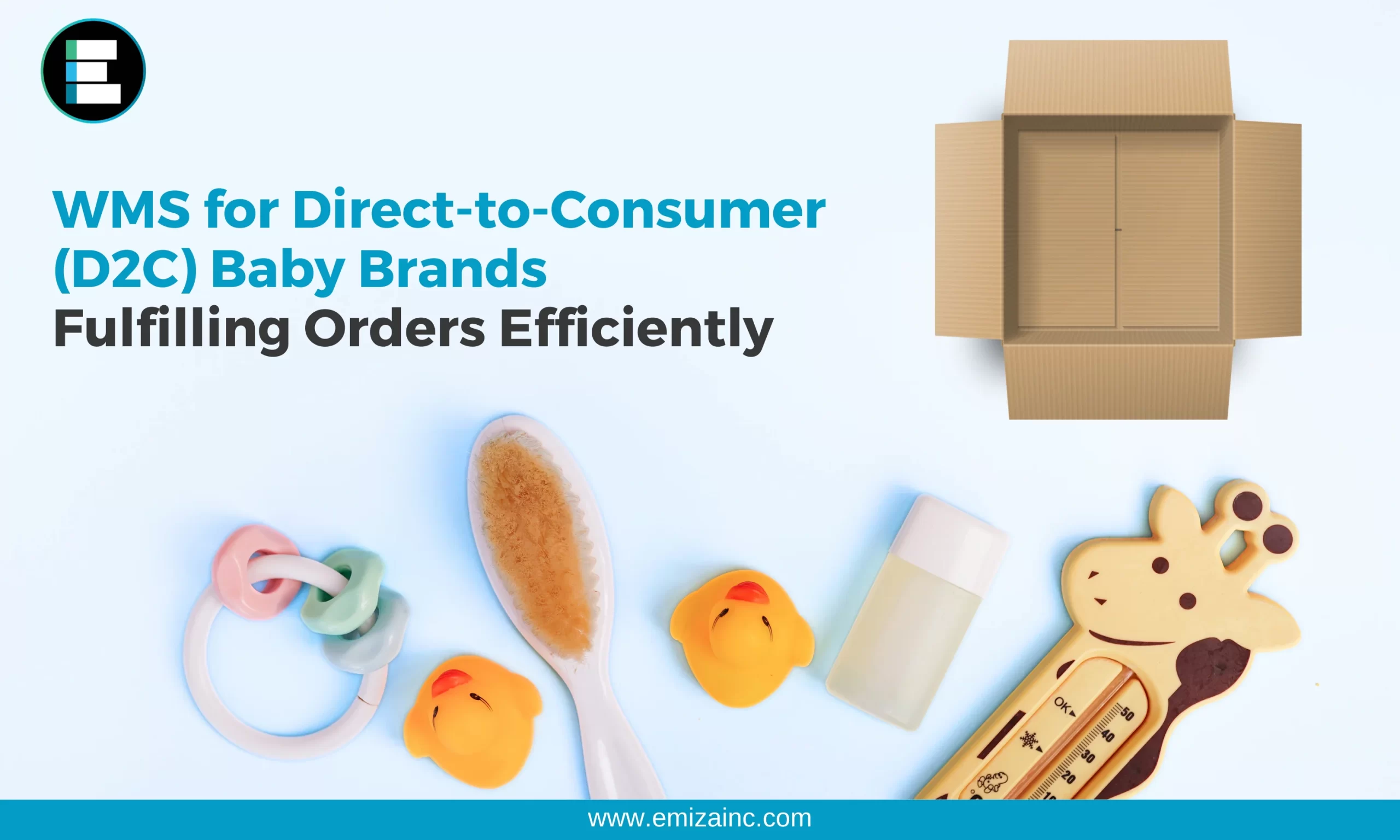The world of commerce has undergone a dramatic transformation in recent years, and the rise of Direct-to-Consumer (D2C) brands has been a significant part of this change. This shift is particularly pronounced in the baby care industry, where D2C brands have gained substantial traction, offering parents in India and around the world more options than ever before. With this growth comes the need for efficient order fulfilment systems to meet customer demands while maintaining cost-effectiveness.
The D2C Boom in Baby Care
The baby care industry in India has witnessed a remarkable transformation in recent years. Traditionally dominated by established brands, the market has opened up to a plethora of D2C startups and brands. These brands have disrupted the status quo by offering a wider range of products, innovative solutions, and personalised shopping experiences to parents.
The advantages of D2C in the baby care sector are evident. It allows brands to:
1. Build Direct Relationships: D2C brands can establish direct connections with their customers, gathering valuable feedback and insights to improve their products and services.
2. Customise Products: They can create specialised products tailored to the unique needs and preferences of parents and babies.
3. Enhance Customer Experience: By selling directly to consumers, brands can control every aspect of the customer journey, from marketing to after-sales support.
However, as these D2C brands grow and gain more customers, they often face challenges related to inventory management, order fulfilment, and scalability. This is where Warehouse Management Systems (WMS) step in to revolutionise their operations.
The Role of WMS in D2C Baby Brands
A Warehouse Management System (WMS) is a software application that helps businesses manage and optimise their warehouse and distribution centre operations. It plays a crucial role in the success of D2C baby brands in India, enabling them to fulfil orders efficiently and deliver a superior customer experience. Let’s explore the key benefits of implementing a WMS in this context:
1. Inventory Accuracy: One of the biggest challenges for D2C brands is ensuring accurate inventory levels. With a WMS, brands can track the movement of products in real time, reducing the risk of overstocking or running out of popular items. This accuracy is vital in the baby care industry, where customers rely on timely deliveries of essential products.
2. Order Fulfilment Efficiency: WMS software optimises order picking and packing processes. It helps prioritise orders based on various factors, such as delivery timelines and product availability. This ensures that customers receive their orders on time, building trust and loyalty.
3. Multi-Channel Integration: Many D2C brands in the baby care industry sell through multiple online platforms, including their websites, marketplaces, and social media. A WMS can seamlessly integrate with these channels, providing a centralised view of all orders and inventory. This streamlines operations and prevents overselling.
4. Batch and Expiry Management: Baby care products often have expiry dates, making batch management crucial. WMS can track batch information and ensure that products with shorter shelf lives are shipped first, reducing waste and improving product quality.
5. Returns and Quality Control: Dealing with returns is a part of every retail business. A WMS helps streamline the returns process, ensuring that returned products are inspected, restocked, or disposed of properly. This is particularly important in the baby care industry, where product safety is paramount.
6. Scalability: As D2C baby brands grow, they need a system that can scale with them. WMS solutions can adapt to changing needs, making it easier for brands to expand their product offerings and customer base.
7. Data Insights: Data is a powerful tool for decision-making. WMS software provides valuable data on warehouse operations, customer behaviour, and product performance. Brands can use this data to refine their strategies and improve their offerings.
Case Study: Himalaya Baby Care – Leveraging WMS for Operational Excellence
Challenges:
– Himalaya Baby Care, a prominent Indian D2C baby care brand, faced operational challenges amid rapid growth.
– Inventory management issues, order fulfilment bottlenecks, and batch management complexities hindered efficiency.
– The brand’s scalability and data-driven decision-making were limited by existing systems.
WMS Implementation:
– Himalaya Baby Care opted for a Warehouse Management System (WMS) solution.
– The selected WMS featured real-time inventory tracking, order prioritisation, batch management, scalability, and data analytics.
Impact:
– Inventory Management: The WMS resolved stock discrepancies, reducing stockouts and overstocking.
– Order Fulfilment: Faster, more accurate order processing improved delivery times and customer satisfaction.
– Reduced Wastage: Batch management minimised product wastage due to expiration.
– Scalability: The WMS seamlessly supported the brand’s product expansion and customer base growth.
– Data-Driven Decisions: Comprehensive data insights empower informed decision-making.
The WMS implementation enabled Himalaya Baby Care to overcome operational challenges and sustain growth in the competitive Indian D2C baby care market. Efficient operations and data-driven strategies maintained the brand’s commitment to delivering high-quality baby care products across India.
Choosing the Right WMS for Your D2C Baby Brand
Selecting the right WMS is a critical decision for D2C baby brands in India. Here are some key factors to consider:
1. Scalability: Ensure that the WMS can grow with your business. It should be capable of handling increasing order volumes and expanding product lines.
2. Integration: Look for a WMS that can seamlessly integrate with your existing e-commerce platforms, marketplaces, and other software systems.
3. User-Friendly Interface: A user-friendly interface is essential for training your team quickly and efficiently.
4. Customization: Your WMS should allow you to customise workflows and processes to suit your specific business needs.
5. Data Analytics: Advanced analytics capabilities will provide valuable insights into your operations and customer behaviour.
6. Support and Training: Consider the level of support and training provided by the WMS provider. Good customer support can be invaluable.
Conclusion
The adoption of Warehouse Management Systems (WMS) is crucial for brands seeking to fulfil orders efficiently and provide exceptional customer experiences. These systems offer solutions to the unique challenges faced by D2C baby brands, such as inventory management, order fulfilment, and scalability. By implementing the right WMS, brands can position themselves for growth and success in a competitive market, ultimately delivering the best products and services to parents and their precious little ones.
Emiza presents Atlas which is tailored to meet the specific needs of the baby care industry, ensuring impeccable inventory control, efficient order processing, and meticulous adherence to safety and quality standards. With Atlas, businesses can seamlessly manage batch tracking, expiry dates, and product traceability, addressing some of the most critical challenges in logistics for baby care products.
To learn more about how Emiza’s Atlas Warehouse Management System can transform your baby care business and help you overcome these logistics challenges, visit our website at https://emizainc.com/. Emiza is dedicated to supporting your journey in providing the highest quality care products for infants and toddlers while streamlining your operations for success.


